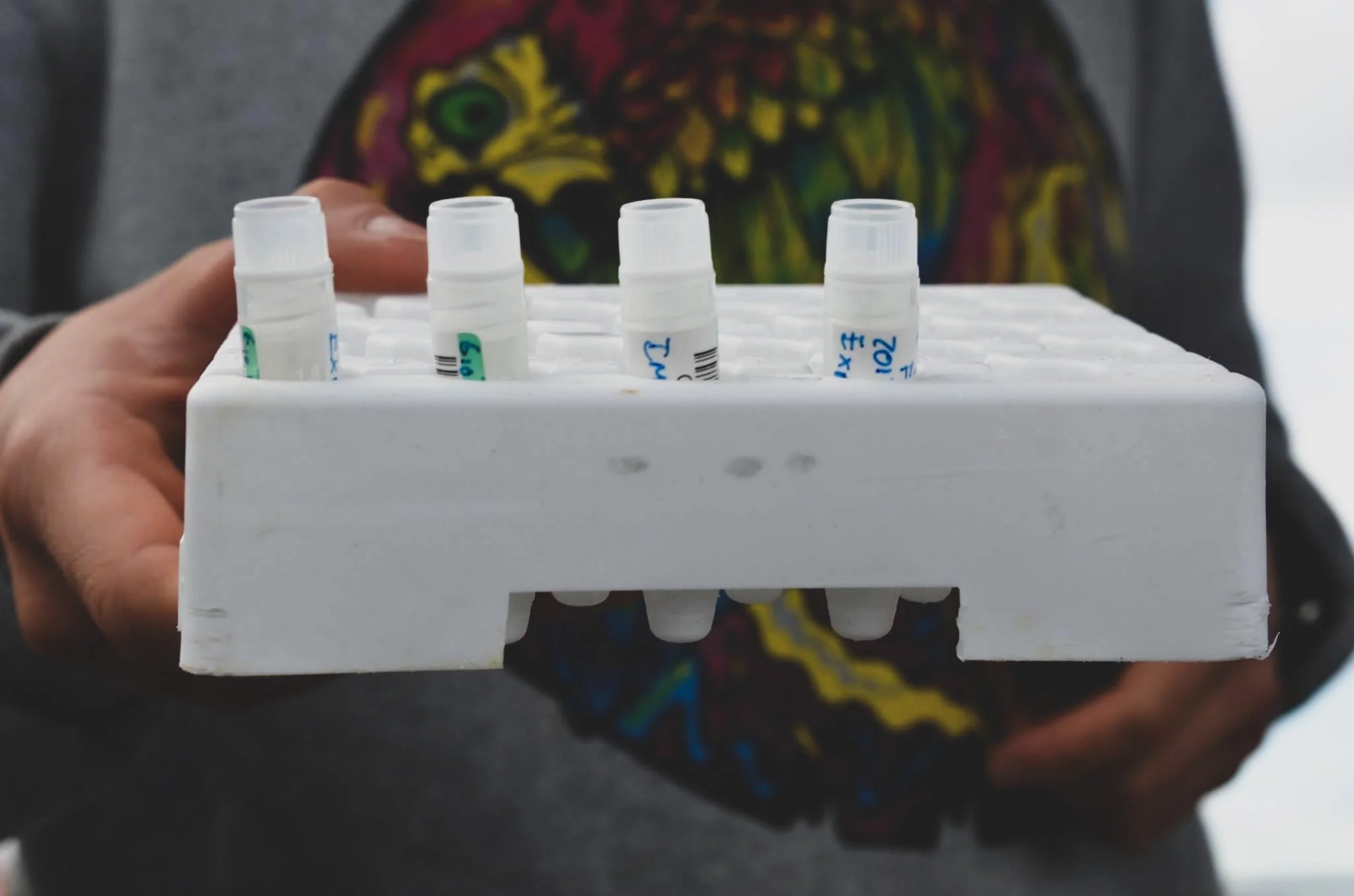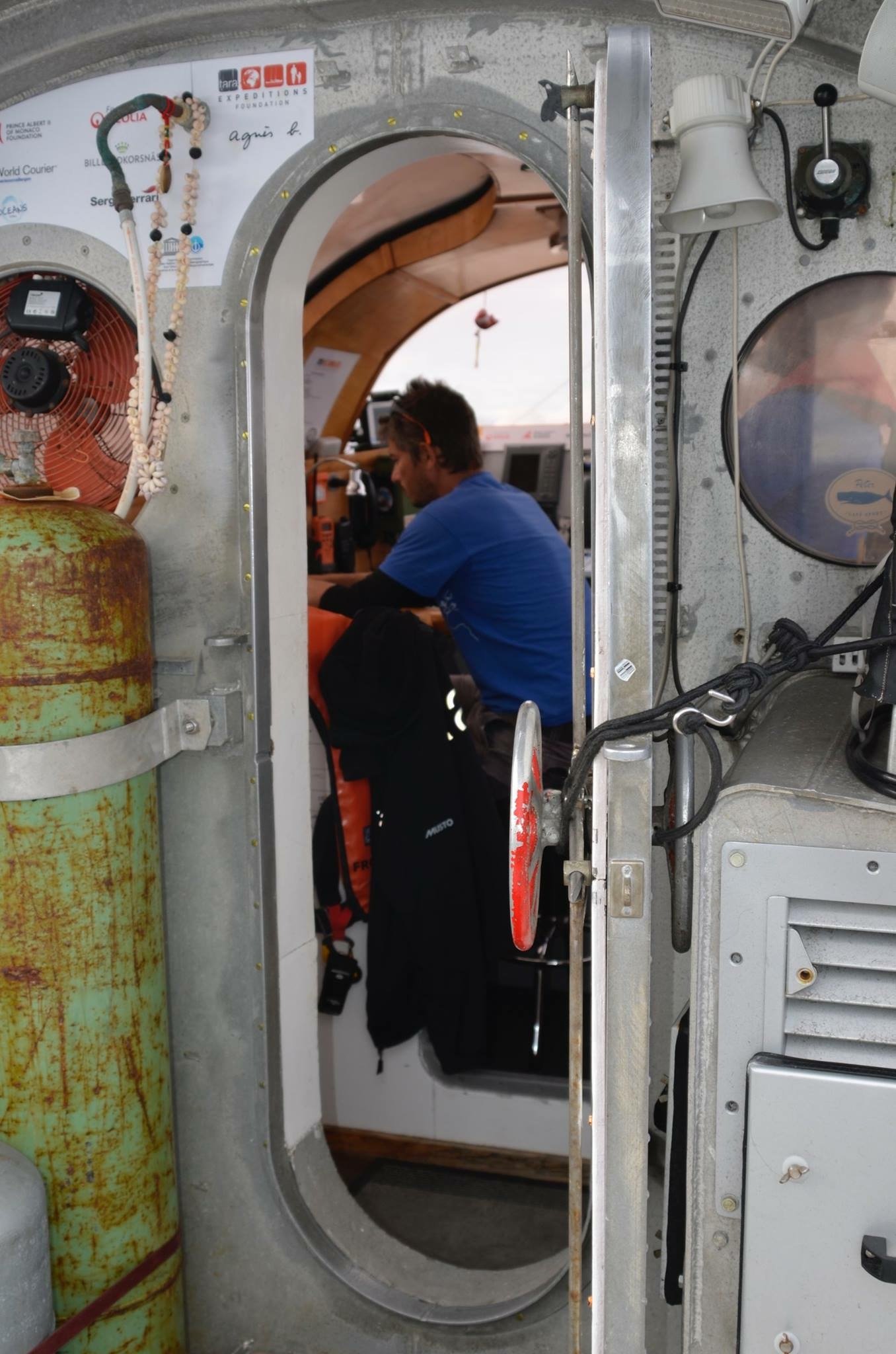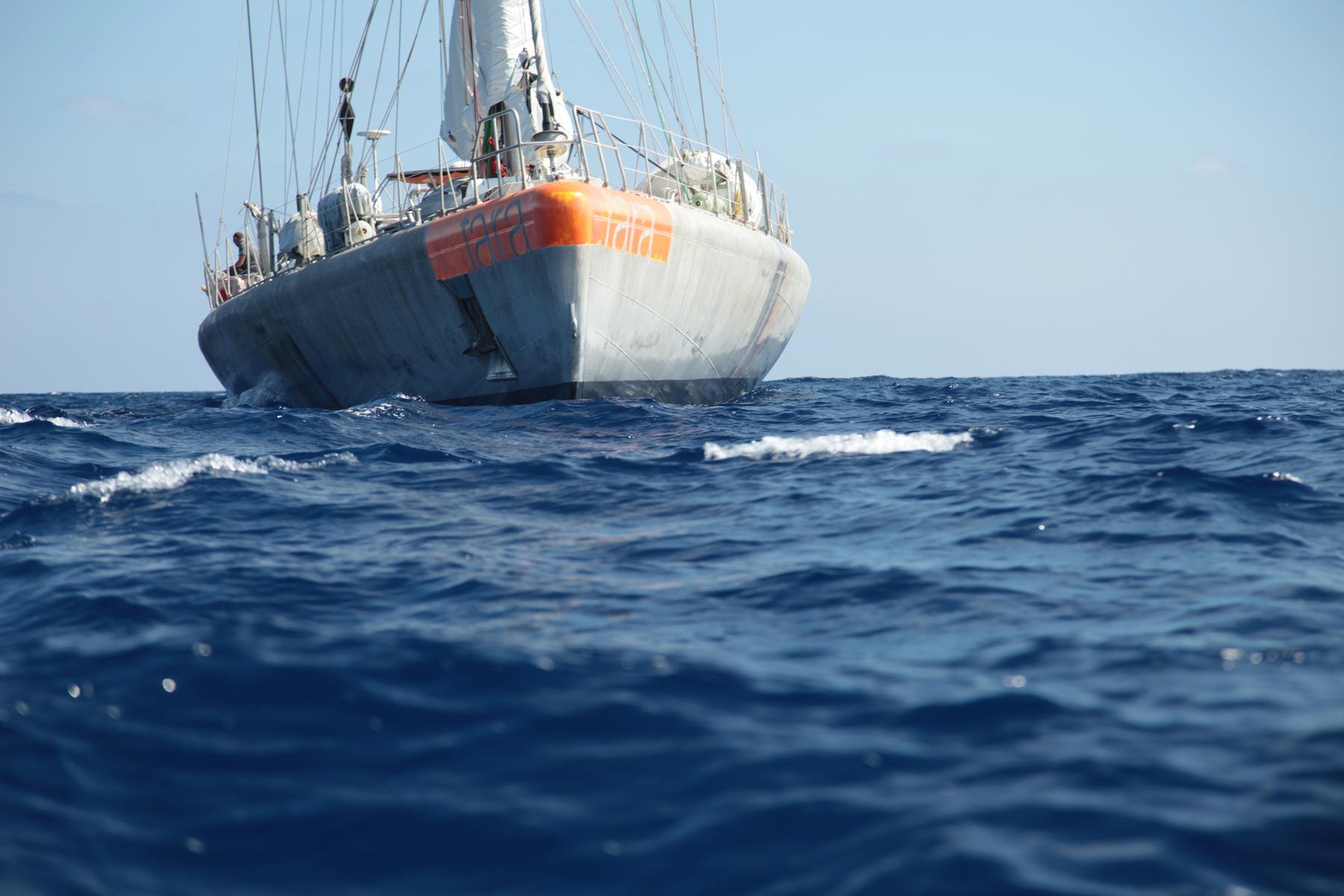
CLIMATE CHANGE AND ITS IMPACT ON THE PACIFIC
Spectacular - one word that encompasses it all. The 360 degree horizon line, the flying fish, the sunset reflecting off the surface of the water…
The Tara Expeditions group is made up of scientists from across the globe with a common goal: to preserve the beauty, diversity, and health of the world’s oceans. Constructed in 1989, the 118-ft schooner Tara (originally named “Antarctica,” and later, “Seamaster” captained by the legendary Sir Peter Blake before his tragic death) was designed to sail through the frigid Arctic and Antarctic. Since its acquisition by the French, Tara has sailed more than 300,000 kilometres and completed 10 expeditions.
The four largest expeditions, Tara Arctic (2006-2008), Tara Oceans (2009-2012), Tara Oceans Polar Circle (2013), and Tara Mediterranean (2014) produced some of the most influential marine science journal articles of the past decade. A special issue of Science was released in May 2015 dedicated to the prodigious data from Tara Oceans: this expedition led to the discovery of more than 500,000 microorganisms from 27,000 samples.
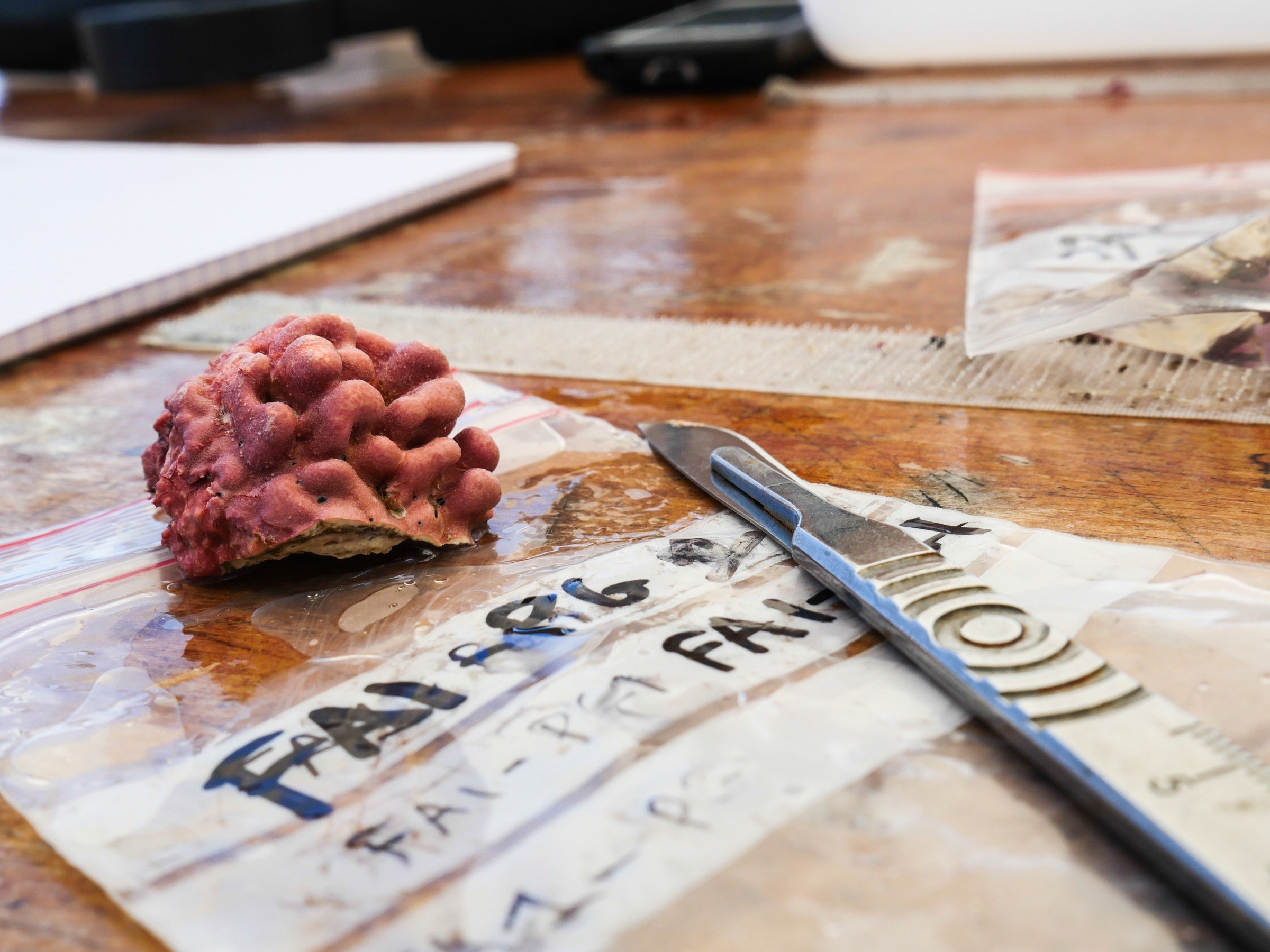

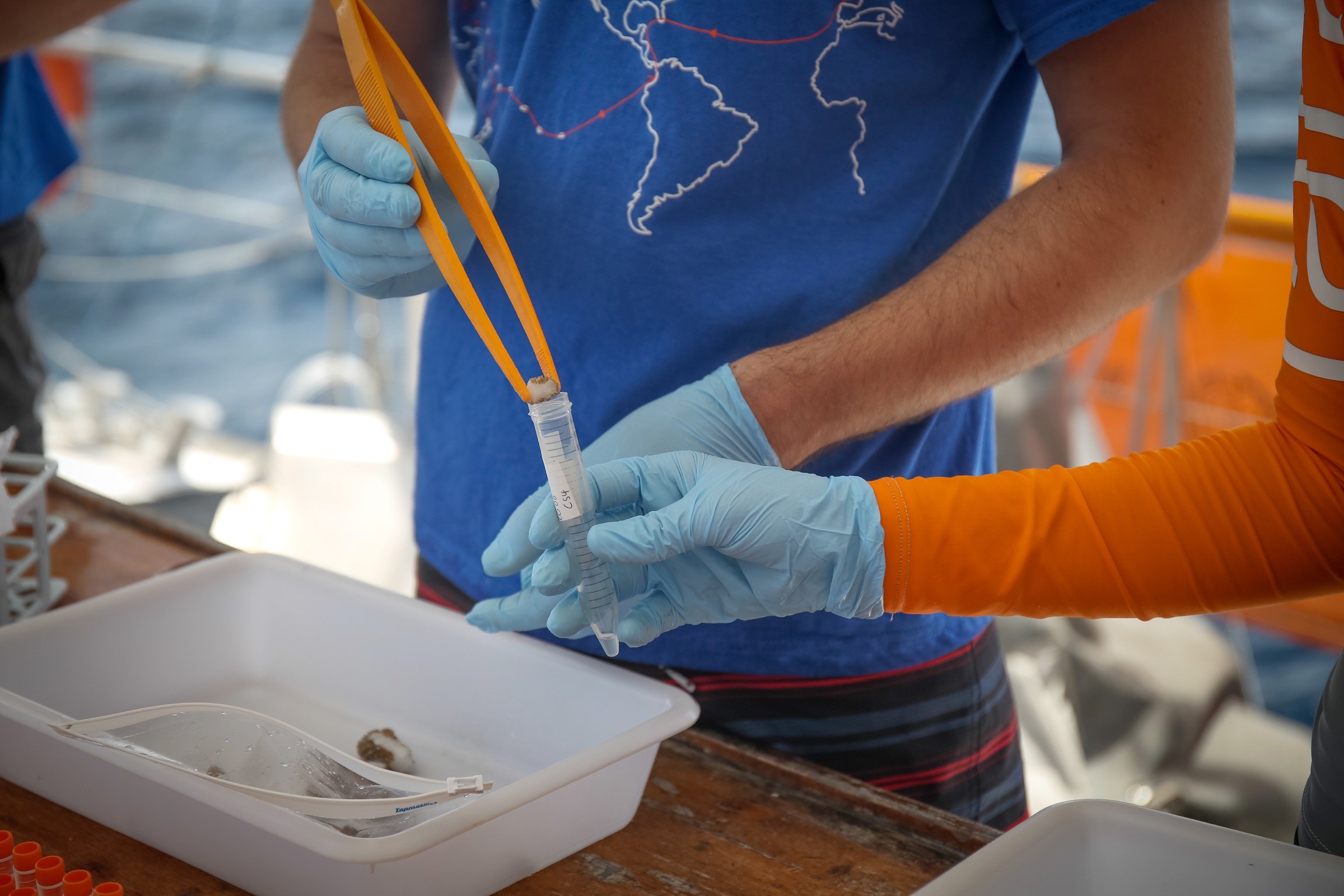
On May 28, 2016, Tara began a two-year voyage of nearly 100,000 km around the Pacific Ocean. This expedition, Tara Pacific, was specifically focused on how the diversity and evolution of coral reefs has been influenced by climate change and humankind and, conversely, the implications of changing reefs on our lives. Although every expedition is motivated by the desire to explore and characterise the effects of the changing planet in remote locations, this was the first mission dedicated to the problems facing tropical regions. This expedition has been one of the most comprehensive assessments of coral reef health and biodiversity ever conducted, with sites spanning the Pacific Ocean from 35°N to 34°S. Due to the wide-reaching nature of this expedition, the project was able to explore both remote reefs that have avoided human disturbance and reefs that have managed to survive despite tourism and pollution.
This voyage involved marine biologists and oceanographers from around the world who studied the response of coral reefs to human influences by surveying biodiversity, including measures of coral diversity, fish genetics, water quality, and marine plankton. In addition to the science, artists, reporters and youth were brought onboard for different legs of the expedition in an effort to generate awareness of the dire situation of our oceans.
Midway through its second year, I was invited to join the expedition for the Fiji to New Zealand Leg. The learnings on board were as broad and the horizon is long but perhaps the most important life lesson was that if you can find a career doing something that you love, you’ll never work another day in your life. No one can come close to Blake’s legacy but doing research such as this on the boat he cherished so much was a humbling and empowering space to be in.

Early morning out on deck, taking in my daily dose of sea spray and spot these cheeky flipper dippers 800 times strong… Any sailor knows how fun it is to race a dolphin!!!
I walk down the alleyway that Sir Peter Blake once walked down and his presence is everywhere. The framed portrait of his face is the first thing you see when you walk into the cabin. He smiles at me and I smile back. We have done two plankton tows in the past 24 hours, one late last night looking at bioluminescence and a routine one again this morning. The filtrations are relatively simple procedures but require precision that large ocean swell often doesn’t allow.
I have come to live for the conversations with the crew during night watch. Stories of near misses with storms, first hand experiences of the effect that climate change is having on our world, french lessons and in return teaching them the haka. Lying down on the deck looking up at the night sky, spotting constellations and thinking that there is something about being out there at night looking up that places me on the surface of the globe. Potentially lost… potentially found.
Our final morning at sea was a bustling hive of excitement. Excitement of yet another country crossed off the pacific expedition list and the honour of bringing Sir Peter Blake’s boat home for the first time since his death. For me it was emotional, the overwhelming pride to belong to such a beautiful country, on board a boat bringing the positive proactiveness that our world needs, in the name of a man that made Aotearoa known - A man that lives on even 15 years after his death. The red socks we gave the crew were out in full force and dolphins rode the bow as we sailed into Marsden Point Marina - The weather could not have been more perfect.
My time on the Tara was both pivotal and far too brief. I learned that the beauty of sailing out into the middle of the ocean is the isolation that it brings - and it’s only in these sorts of places do you truely get to know yourself.
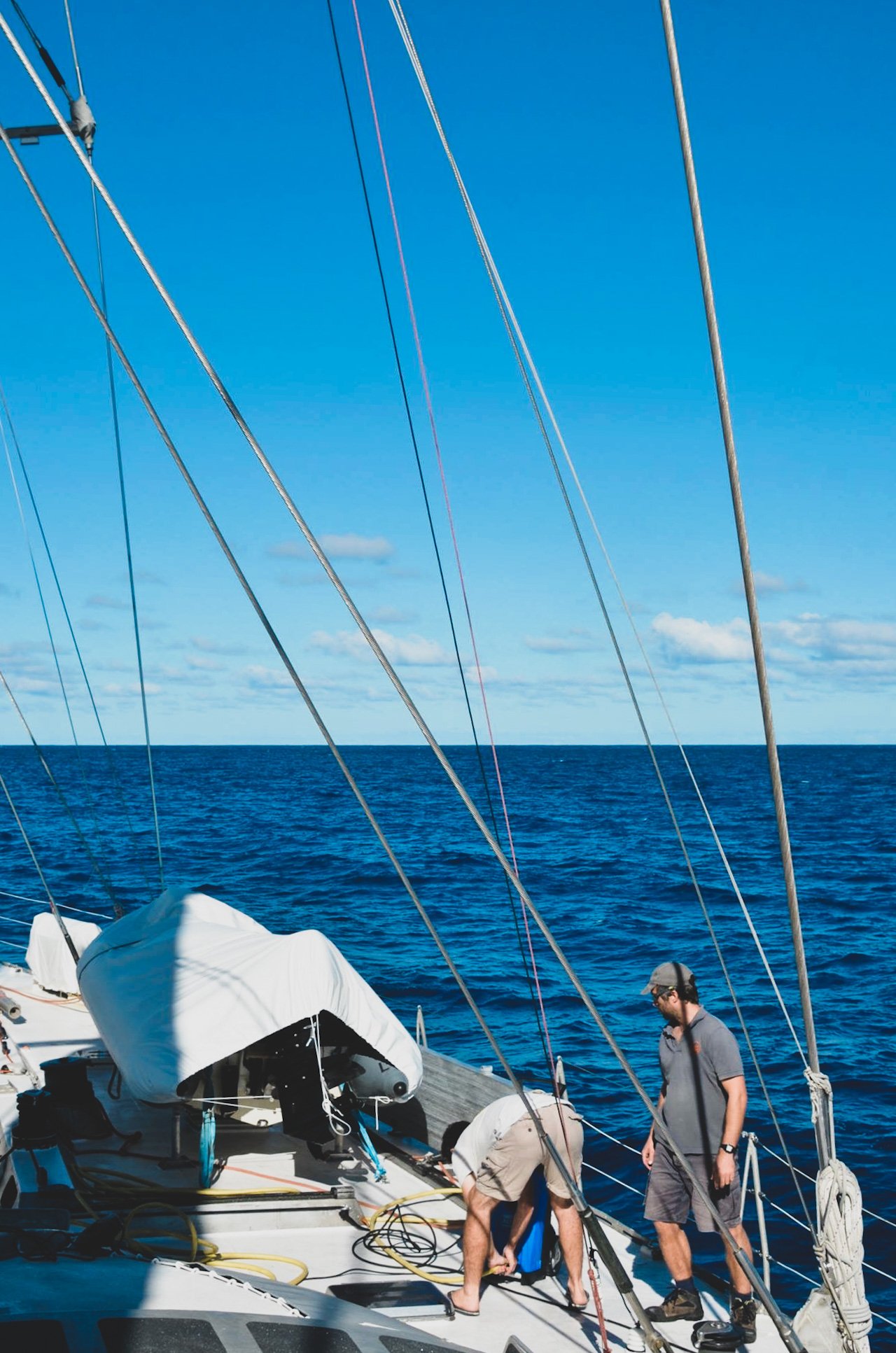

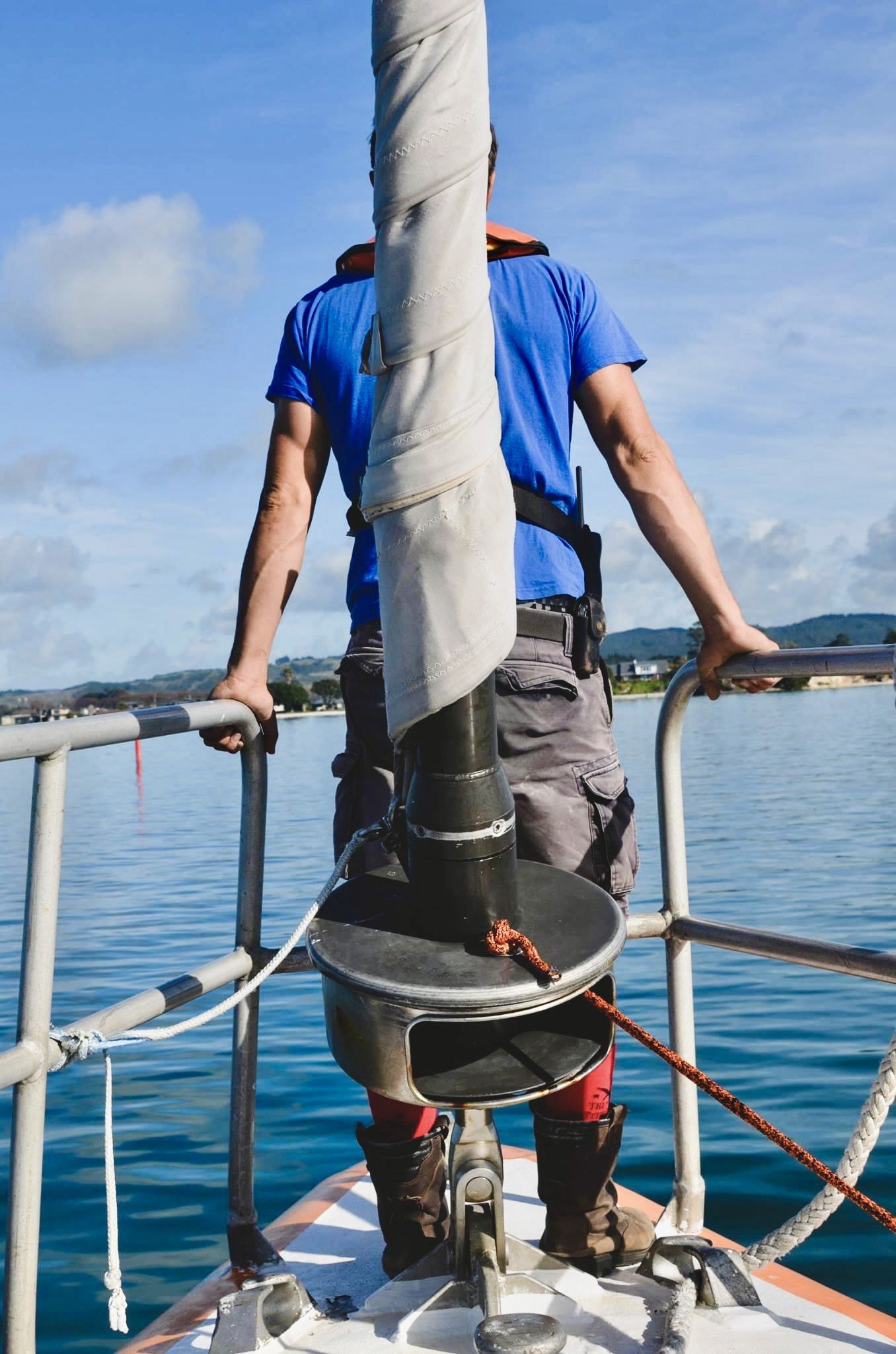
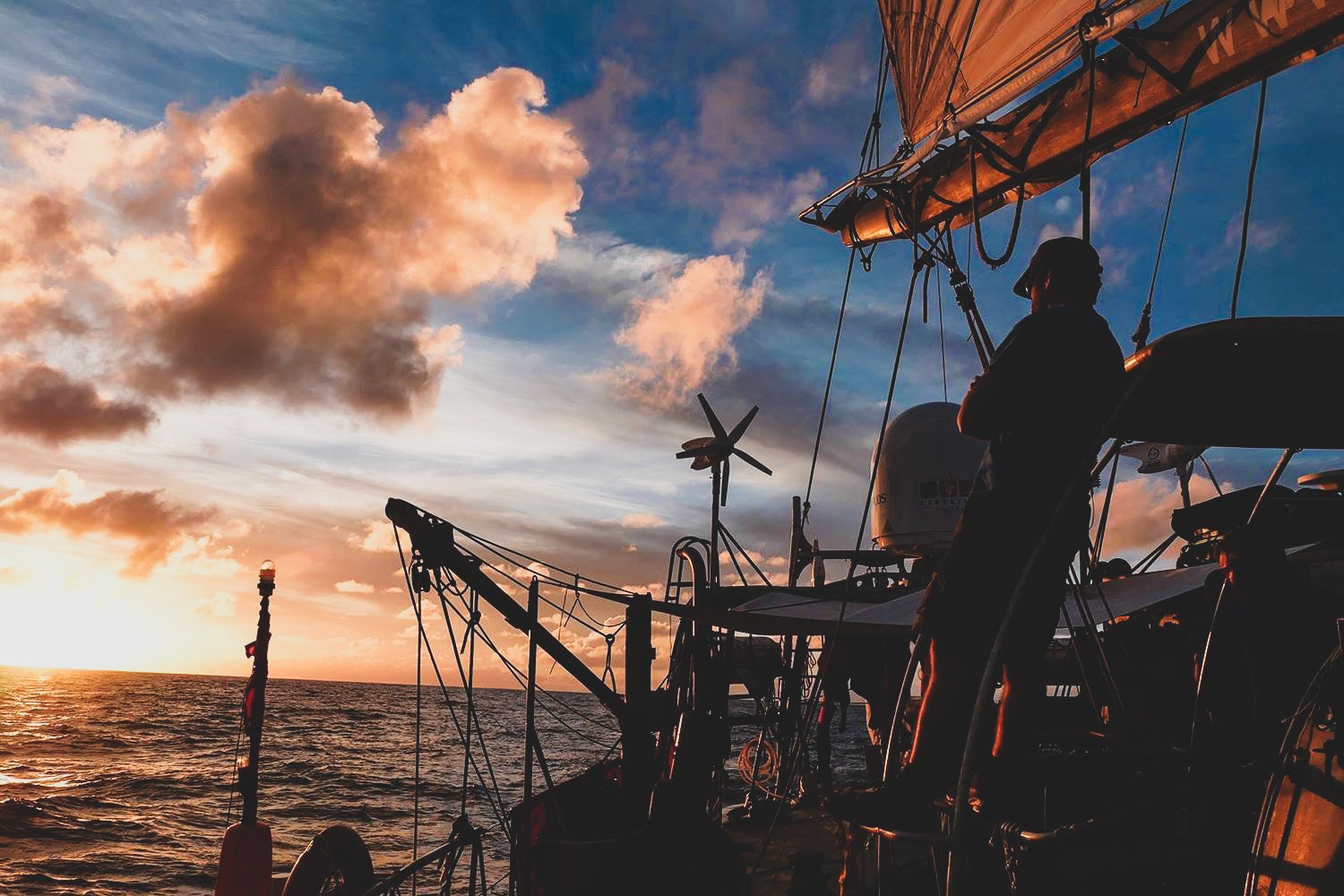
Special thanks to both the Sir Peter Blake Trust and Tara Expeditions for this insane opportunity - I hope one day I will be able to pay it forward!




